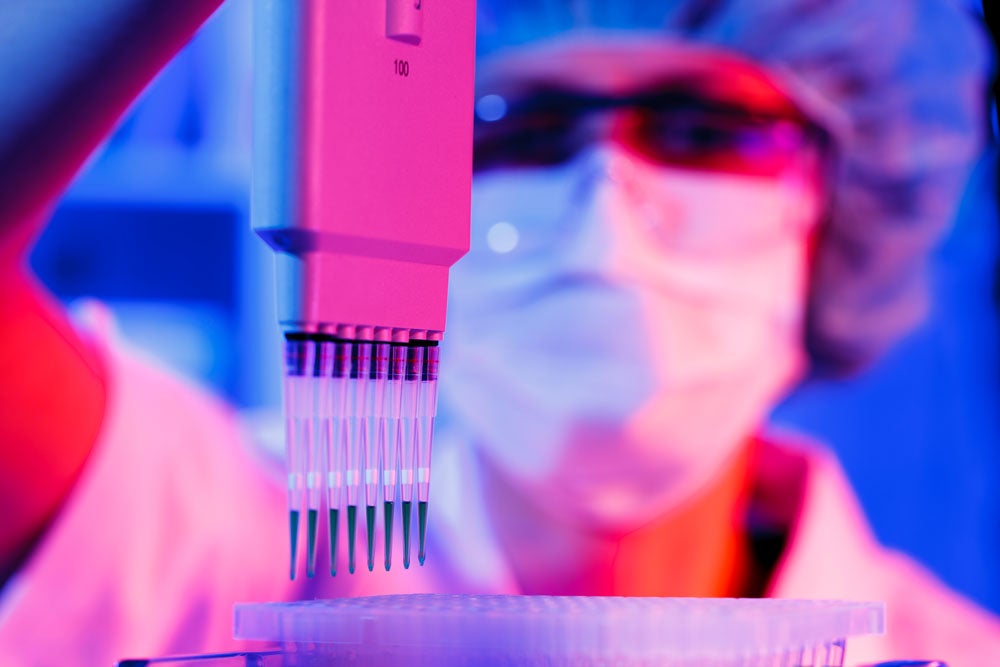Can Genetic Testing Make You a Better Athlete?

Genetic tests for athletic ability: Science or snake oil?
How does that one friend always crush you at long-course racing when you destroy them in shorter tris—despite the fact that you both train exactly the same? What if there was a way to know which distance, or sport, you’d be best at without even training? A recent boom in tests and products claim that the answers to those athletic questions may be in your genes.
The idea behind analyzing genetic testing is that all humans have patterns written into the building blocks of their DNA. Variants in these genetic patterns can be an indicator of a predisposition for various diseases, but they can also be an indicator of athletic potential. The trick is knowing which mutations of our roughly 20,000 to 25,000 genes indicate specific athletic ability.
To narrow down the search, geneticists currently focus on a few dozen genetic markers that they believe could tell us things like our ability to manage inflammation, resist oxidative stress, and how we metabolize energy, or if we’re predisposed to power or endurance events. But even if those markers pop up on your test, it doesn’t mean you’re going to win gold—or that you should stop trying.
“The general consensus among genetics researchers is that the current level of knowledge would only provide guidelines, but nutrition and lifestyle also play a key role in the abilities and performance of an athlete,” says Zb Pietrzkowski, who has a doctorate in molecular medicine and biology and is senior vice president of R&D for Futureceuticals Inc.—a company that does not sell genetic testing to consumers but instead uses it to research the efficacy of their products. Pietrzkowski uses genetic testing to nd out who best responds to Futureceuticals’ supplement, AltRed, then uses that pool of best-responders to more ef ciently study the important question of why their beet-based supplement works. (To read about our trip to the AltRed’s labs, read this article.)
“The main challenge in commercial genetic testing is that the marketing is leading the research,” Pietrzkowski cautions. “This is called ‘Direct-to-consumer’ (DTC). The limited knowledge of the role of genes in athletic performance that several companies provide misrepresents the science behind the tests to attract customers.” (A stance echoed by a panel of scientists in a 2015 British Journal of Sports Medicine consensus statement.)
But Pietrzkowski says it’s not pure fiction, just that the affordable DTC genetic tests aren’t there yet. In fact, Pietrzkowski’s already assisting the U.S. military to use athletic genetic testing to determine a special force’s candidate’s ability to withstand the rigors of its highly demanding training—as those troops are among the most financially expensive to train.
“Sports genetics should be considered a new research area which is rapidly growing, but there is a lot of work to be done,” he says. “It is expected that research on sport genetics will deliver soon-validated methods of predictive value to identify the predisposition of tested individuals.”
For now, don’t expect to be handed an easy genetic roadmap to success, but the future looks bright. Despite being steeped in cutting-edge science, Pietrzkowski’s final advice sounds surprisingly old-school: “Even though an athlete’s talent could be determined (or redirected) by the genes, no gene will ever be a substitute for hard training, good coaching, and good sport-science support.”
RELATED: Beets Increased My Power Output—But Nobody Knows Why